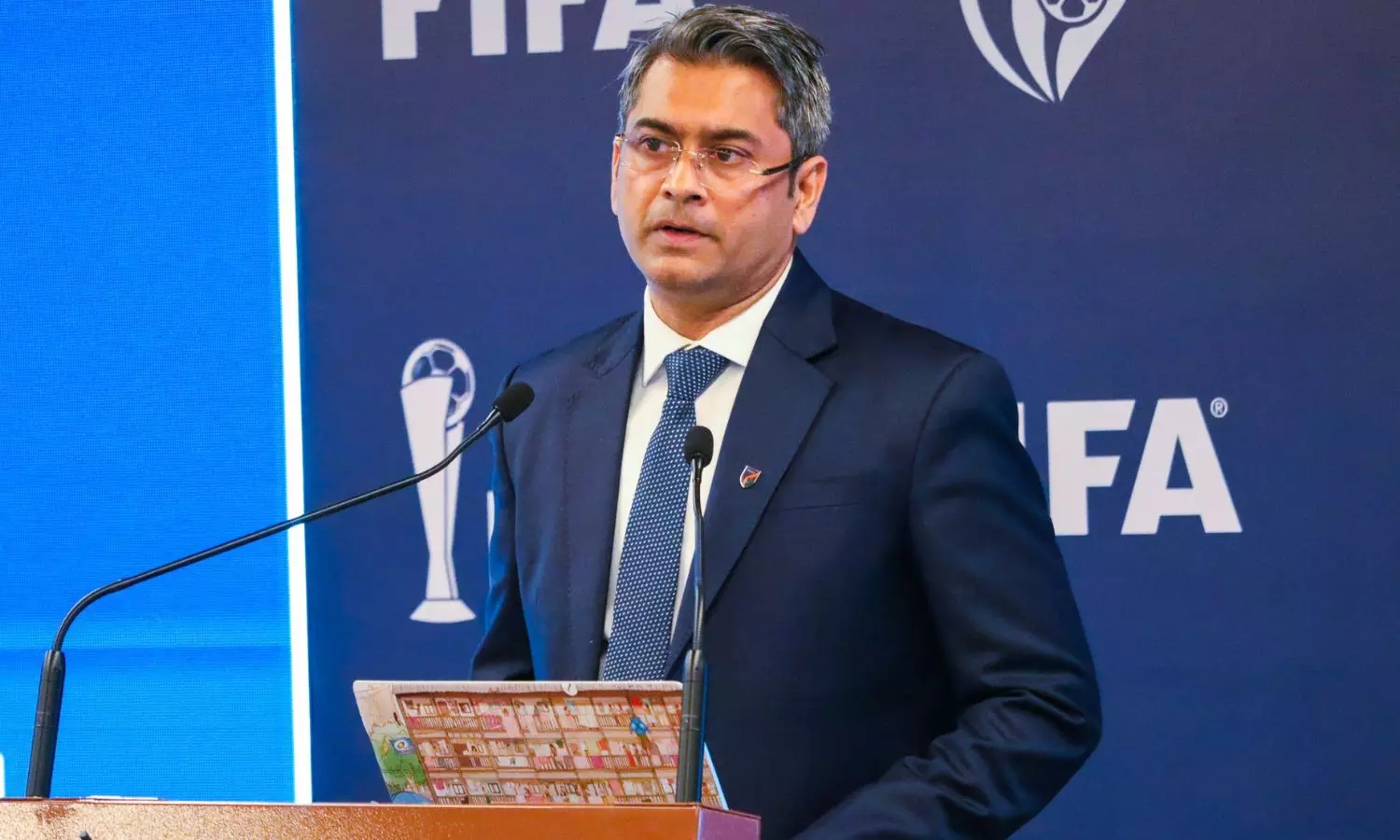Football
'India missed the bus by not playing in 1950 World Cup': Kalyan Chaubey
While there are different theories behind India's decision not to participate in the 1950 World Cup, Chaubey pointed to the 1951 Asian Games in Delhi as the reason for India's withdrawal.

FILE PHOTO: Kalyan Chaubey became the AIFF president in September 2022.
Kolkata: Kalyan Chaubey, the president of the All India Football Federation (AIFF), on Tuesday, said India 'missed the bus' by giving participation in the Asian Games and Olympics more importance over the FIFA World Cup.
Chaubey was referring to India's languishing FIFA rankings, as the national team is currently at the 121st spot while addressing an audience - comprising of media persons and former footballers - in Kolkata on the felicitation ceremony of the 1974 Asian Youth Championship winning Indian team.
Incidentally, the Asian Youth Championship - a title India jointly shared with Iran following a 2-2 draw in Bangkok on April 30, 1974 - remained Indian football's last international crown.
The country has only gone down the hill since, with Igor Stimac-coached side barely making any improvement in terms of performance and rankings.
Misplaced priorities
To bring India's poor ranking to perspective, Chaubey pointed to former administrators' misplaced priorities.
"Many people have asked me why India are falling behind in the FIFA rankings, I have asked myself too this question. A journalist once told me that India did not participate in the 1950 FIFA World Cup in Brazil; had India played in the World Cup then, they would have faced the top-ranked nations and would not have fallen behind,” said Chaubey.
While there are different theories behind India's decision not to participate in the faraway World Cup, Chaubey pointed to the 1951 Asian Games in Delhi as the reason for India's withdrawal. India won their maiden Asian Games gold medal at the inaugural edition in Delhi.
“What I got to know is that - whether this history is correct or not that you (journalists) will assess - we did not play because India were hosting the Asian Games in Delhi in 1951. They did not want to travel for three months by ship and did not give importance to the World Cup," he stated.
“From 1947 to 1960, India were the Asian powerhouse,” Chaubey said, adding “We might have missed the bus as the officials and the government between 1950-1974 considered partcipation and winning medals at the Asian Games and Olympics more important.”
'World Cup became popular in 1986'
Chaubey also said that the concept of the World Cup became popular in India only in 1986 when India watched Diego Maradona mesmerising the crowd on television for the first time as Argentina were crowned the champions.
“It is only after seeing Maradona on television in 1986, the World Cup became popular in India. By then the golden period of 1970s was over and it slipped out of prime time and we missed the bus," stated Chaubey.
While India were the champions of the 1951 and 1962 Asian Games, and joint champions of the Asian Youth Championship, the country could not stay up in the competition with their Asian rivals.
Talking about how such moves worked against India's bid to play in the World Cup, Chaubey explained, "It is like a 400m race, and you went behind in the first lap itself. We may run faster after that, but by that time your competitors have gone way ahead by at least one lap."
On how India could improve their standard, Chaubey said, "We have to give extra effort to make up for it. There is no overnight magic formula. It is a big country, and there is a lot of room for improvement."
On refereeing standard
There have been controversies in Indian football, especially in ISL, about poor refereeing, with several clubs lodging complaints with the AIFF.
Addressing a question on refereeing, Chaubey said, "We have started the process of evaluating the actions of our referees. I also had a meeting with Pierluigi Collina (FIFA head of referee) about this. We have also asked for help from international referees and analysed the every action of Indian referees, and based on that we have asked them what decision they would have taken had they been in their positions. Collina said we can only expect 84 per cent human decisions to be correct and remaining 16 incorrect. I think we are stuck in that 16 per cent," remarked Chaubey.

